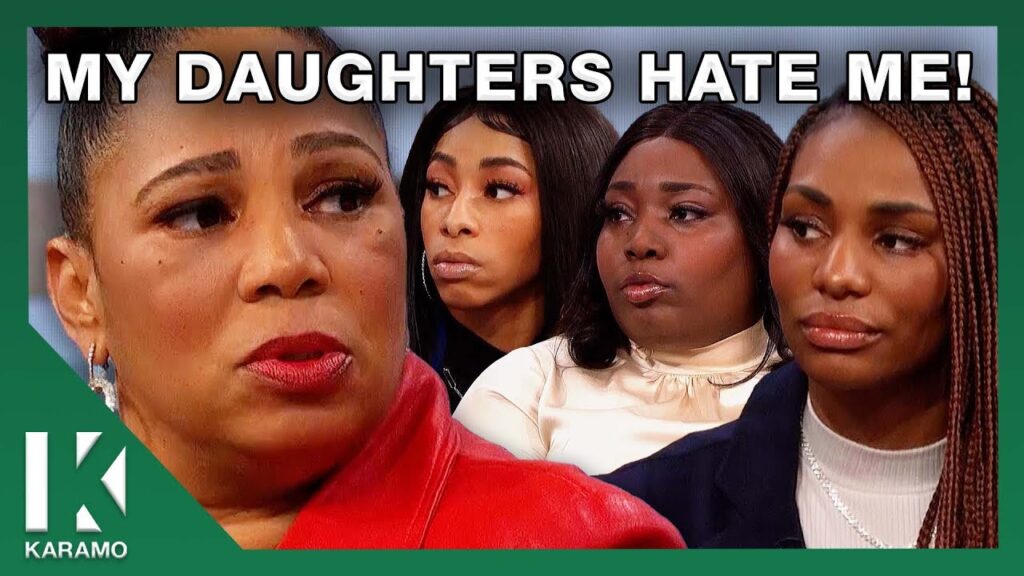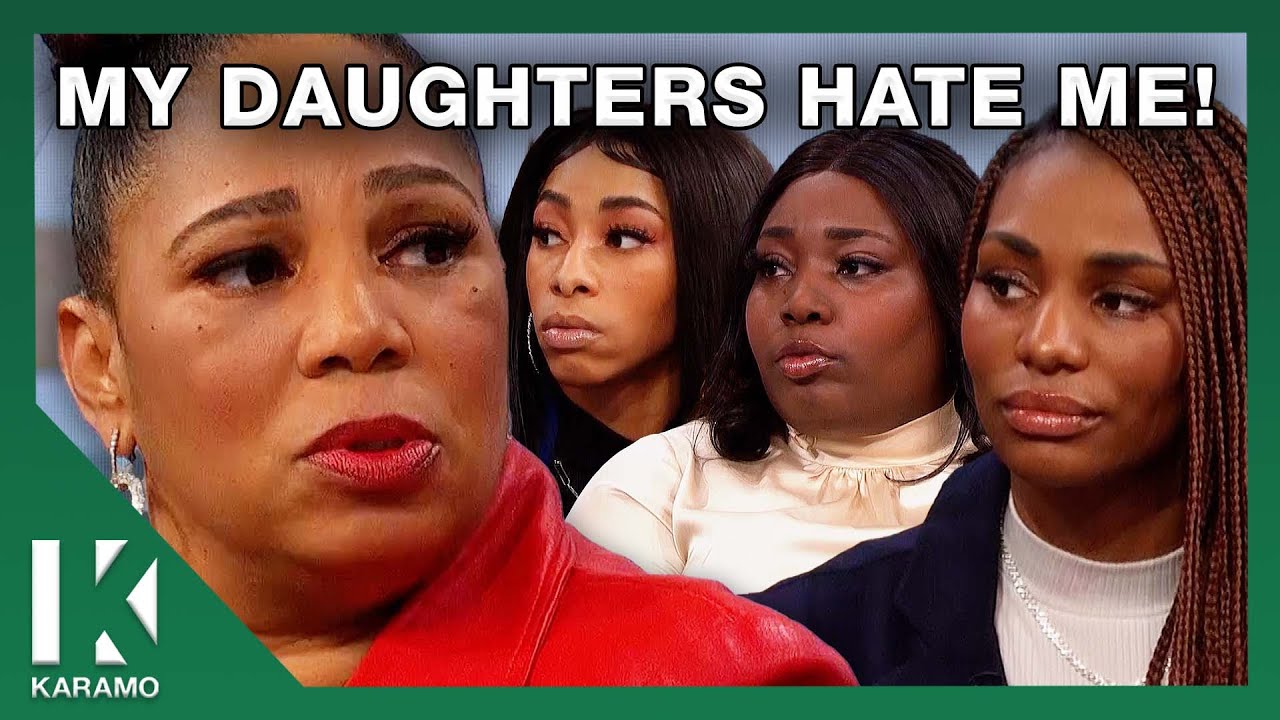
My Grown Daughter Hates Me: Understanding the Rift and Finding a Path to Reconciliation
Discovering that your grown daughter harbors feelings of animosity towards you can be a deeply painful and unsettling experience. The bond between a mother and daughter is often portrayed as one of unwavering love and support, but the reality is that relationships can become strained, fractured, and even filled with resentment. If you’re grappling with the realization that “my grown daughter hates me,” it’s crucial to approach the situation with empathy, self-reflection, and a willingness to understand the underlying causes. This article delves into the complexities of mother-daughter relationships, explores potential reasons for the animosity, and provides practical steps toward reconciliation.
Understanding the Complexities of Mother-Daughter Relationships
Mother-daughter relationships are unique and often intense. They are shaped by a multitude of factors, including societal expectations, personal experiences, and individual personalities. The dynamics can be further complicated by unresolved childhood issues, differing values, and life choices. It’s essential to recognize that the feeling of “my grown daughter hates me” likely stems from a complex history and a build-up of emotions over time.
Many believe that the mother-daughter relationship has a profound impact on a woman’s development. It impacts how the daughter views herself, her relationships, and her place in the world. When this relationship is strained, the consequences can be far-reaching, affecting the daughter’s self-esteem, mental health, and overall well-being.
Possible Reasons Why Your Grown Daughter Might Harbor Resentment
Identifying the root causes of your daughter’s animosity is the first step toward healing the relationship. While every situation is unique, some common factors contribute to strained mother-daughter bonds. Here are some potential reasons why your grown daughter might feel resentful:
- Unresolved Childhood Trauma: Past experiences, such as neglect, abuse, or parental conflict, can leave lasting scars and contribute to feelings of resentment. Even seemingly minor incidents can have a significant impact on a child’s emotional development.
- Differing Values and Beliefs: Disagreements on fundamental issues, such as lifestyle choices, religious beliefs, or political views, can create tension and conflict. If a daughter feels that her mother disapproves of her choices, it can lead to feelings of rejection and resentment.
- Perceived Criticism or Judgment: Mothers may unintentionally come across as critical or judgmental, even when they have good intentions. Daughters may interpret this as a lack of acceptance and feel that they are not good enough.
- Lack of Emotional Support: Daughters need to feel that their mothers are there for them, providing emotional support and understanding. If a daughter feels that her mother is unavailable or dismissive of her feelings, it can damage the relationship.
- Boundary Issues: Overly involved or controlling mothers can stifle their daughters’ independence and create resentment. Daughters need space to grow and make their own decisions, even if their mothers disagree.
- Past Mistakes: Everyone makes mistakes, but some mistakes can have a lasting impact on relationships. If you have hurt your daughter in the past, it’s important to acknowledge your mistakes and apologize sincerely.
- Comparison to Others: Comparing your daughter to siblings or other individuals can cause feelings of inadequacy and resentment. Each person is unique and should be valued for their own strengths and accomplishments.
Recognizing the Signs That Your Grown Daughter Hates You
Sometimes, the signs are subtle, while other times, they are more overt. Recognizing these signs is crucial for addressing the issue and seeking reconciliation. Some common indicators include:
- Limited or No Contact: Your daughter may avoid contact with you, refusing to answer your calls or respond to your messages.
- Cold or Distant Behavior: When you do interact, your daughter may be cold, distant, or emotionally unavailable.
- Frequent Arguments: Conversations may frequently escalate into arguments, with little or no resolution.
- Passive-Aggressive Communication: Your daughter may use sarcasm, backhanded compliments, or other forms of passive-aggressive communication.
- Open Hostility: In some cases, your daughter may express her hatred or resentment directly, through harsh words or accusations.
- Exclusion from Important Events: Being excluded from significant life events, such as weddings, birthdays, or holidays, can be a clear sign of estrangement.
Steps Toward Reconciliation: Mending the Broken Bond
Reconciling with a grown daughter who harbors resentment is a challenging but not impossible process. It requires patience, empathy, and a willingness to change. Here are some steps you can take to begin mending the broken bond:
Acknowledge and Validate Her Feelings
The first step is to acknowledge that your daughter’s feelings are valid, even if you don’t understand them. Listen to her without interrupting or becoming defensive. Let her know that you hear her and that you understand her pain. Try to see things from her perspective, even if it’s difficult.
Take Responsibility for Your Actions
If you have made mistakes in the past, take responsibility for your actions. A sincere apology can go a long way toward healing the relationship. Avoid making excuses or blaming others. Focus on what you did wrong and how you can do better in the future.
Communicate Openly and Honestly
Create a safe space for open and honest communication. Encourage your daughter to express her feelings without fear of judgment. Be willing to listen to her feedback and make changes based on what she says. Avoid getting defensive or shutting down the conversation.
Set Healthy Boundaries
Establish healthy boundaries that respect both your needs and your daughter’s needs. Avoid being overly involved in her life or trying to control her decisions. Give her the space she needs to grow and develop as an individual. Respect her boundaries, even if you don’t agree with them.
Seek Professional Help
If you are struggling to reconcile on your own, consider seeking professional help. A therapist or counselor can provide guidance and support as you navigate the complexities of your relationship. Family therapy can be particularly helpful in addressing underlying issues and improving communication skills.
Be Patient and Persistent
Reconciliation takes time and effort. Don’t expect immediate results. Be patient and persistent, even when things get difficult. Continue to show your daughter that you care and that you are committed to rebuilding the relationship.
Focus on the Present and Future
While it’s important to acknowledge the past, don’t dwell on it. Focus on the present and future. Create new memories together and build a stronger foundation for the relationship moving forward. Let go of resentment and bitterness and focus on forgiveness and understanding.
When Reconciliation Isn’t Possible: Accepting the Reality
Despite your best efforts, reconciliation may not always be possible. In some cases, the damage to the relationship may be too severe, or your daughter may simply not be willing to reconcile. It’s important to accept this reality and focus on your own well-being. Seek support from friends, family, or a therapist. Allow yourself to grieve the loss of the relationship and move forward with your life.
Realizing “my grown daughter hates me” is a difficult truth to face, but it doesn’t have to define your future. By understanding the complexities of mother-daughter relationships, identifying the root causes of the animosity, and taking proactive steps toward reconciliation, you can increase your chances of mending the broken bond. Remember to prioritize open communication, empathy, and self-reflection throughout the process. Even if reconciliation isn’t possible, focusing on your own well-being and seeking support can help you navigate this challenging situation and find peace.
If you are in a situation where “my grown daughter hates me,” remember that you are not alone. Many mothers face similar challenges, and there are resources available to help you navigate this difficult time. [See also: How to Improve Communication with Your Adult Child] [See also: Dealing with Estrangement from Family Members] [See also: Finding Forgiveness and Healing After a Family Rift]

